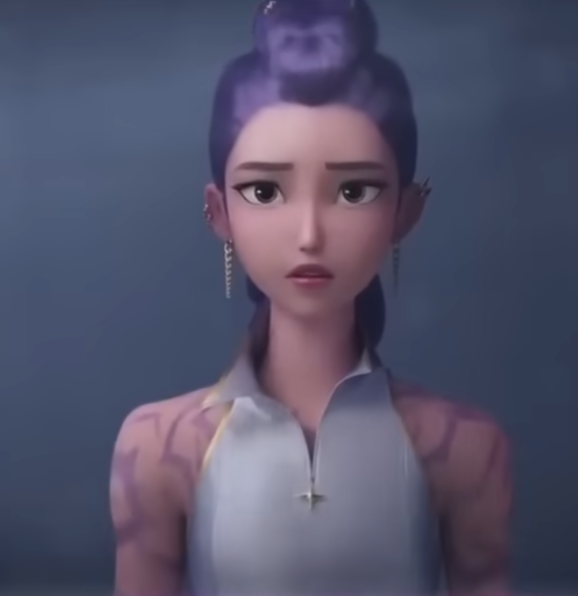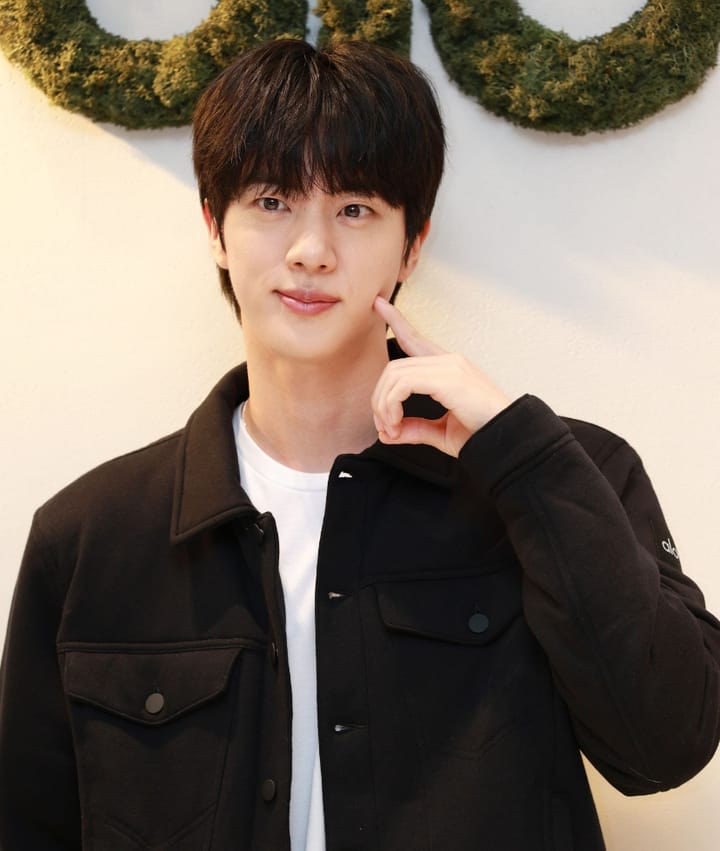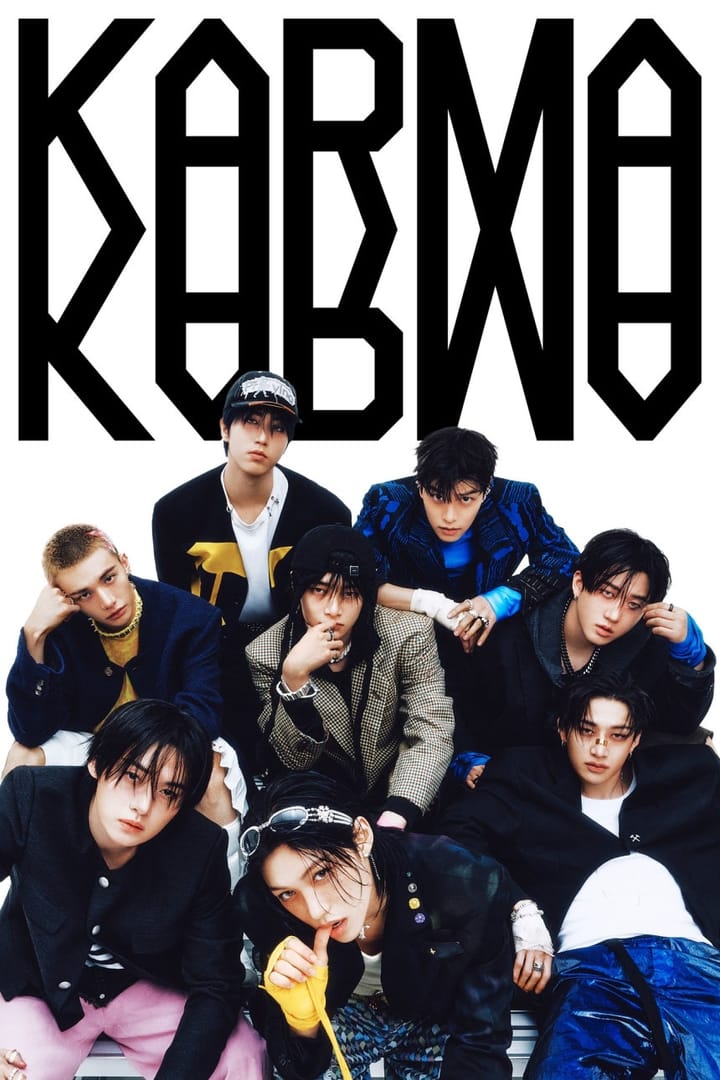It's Okay Not to Be Perfect: The Korean Philosophy That KPop Demon Hunters Brought to the West

It's Okay Not to Be Perfect: The Korean Philosophy That KPop Demon Hunters Brought to the West
Netflix's "KPop Demon Hunters," released in June 2025, has become a global phenomenon that goes far beyond entertainment. The animated film has shattered records, becoming Netflix's most-watched original animated movie of all time with 236 million views, surpassing "Red Notice" as the platform's most-viewed film overall. But its true significance lies not just in its massive success, but in how it introduced Western audiences to a fundamentally different way of thinking about good, evil, and human nature itself.
Western Critics Discover Philosophical Depth
What struck Western critics most wasn't just the catchy K-pop soundtrack or stunning animation, but the unexpected philosophical complexity beneath the surface. Roger Ebert's review praised it as "emotionally empowering" and "more than just another lazy animated streaming project," while family-focused review site Plugged In noted that "KPop Demon Hunters unexpectedly delivers commentary on the human condition," exploring deep themes of shame and internal conflict.
The film's moral complexity particularly resonated with Western reviewers. TV Tropes analyzed how the story challenges black-and-white thinking: "The hunters operate under the assumption that all demons are monsters who must be killed or sealed, but several wrinkles appear in this conviction." This observation captures something Western audiences found both fascinating and unfamiliar.
Beyond Good vs Evil: The Korean Worldview
At its core, KPop Demon Hunters embodies a fundamental aspect of Korean and broader East Asian philosophy that differs dramatically from Western dualistic thinking. While Western culture tends to view good and evil as clearly separate, opposing forces, Korean thought embraces a more complex understanding of human nature.
The protagonist Rumi exemplifies this philosophy perfectly. She carries demon bloodline markings on her body, yet remains fundamentally good-hearted. More striking is the character of Jinu, originally human who became a demon but ultimately sacrifices himself to protect Rumi and save the world. His character arc demonstrates the Korean belief that "good people can have evil aspects, and evil beings can return to good."
This reflects the Korean understanding that every person contains both positive and negative elements simultaneously, and circumstances and choices determine which aspects emerge. It's not about eliminating the "bad" parts of ourselves, but learning to live harmoniously with our complete, imperfect nature.
Redefining Shame: An Eastern Perspective
Director Maggie Kang revealed that shame was a central theme they wanted to explore, noting it's "not really tackled in animation" and "feels like an older-skewing theme." But the Korean understanding of shame differs significantly from Western interpretations.
In Western culture, shame often implies "my entire existence is wrong." In Korean culture, shame means "I have parts of myself I don't want others to see." Rumi's demon heritage isn't about her being fundamentally evil—it's about having an aspect of herself she feels compelled to hide.
This distinction is crucial. Korean culture emphasizes accepting these imperfect parts as integral to who we are, rather than trying to eliminate them. This explains why K-pop idols appearing on variety shows, making mistakes, and showing their clumsy, human sides often become more beloved by fans—it's the cultural embrace of authentic, imperfect humanity.
Individual vs Collective: Beyond the Logic of Sacrifice
The film presents two characters who follow the same philosophical framework: sacrifice the individual for the greater good. Celine teaches Rumi to maintain a perfect image not to criticize the K-pop industry, but to protect the Honmoon (magical barrier) that shields the world from demons. Jinu ultimately sacrifices his life to save others.
Both represent the East Asian collectivist value system where the group's welfare supersedes individual desires. However, the film also reveals the limitations of this approach, setting up Rumi's revolutionary final choice.
Rumi's Choice: A New Philosophy of Harmony
The film's climax centers on Rumi's decision to destroy the Honmoon itself. As executive music producer Ian Eisendrath explained, "Rumi realizes that this whole plan to seal the Honmoon and get rid of all the demons is evil... and decides to destroy the Honmoon along with the notion of demons versus humans."
This isn't about releasing demons into the world—it's about dismantling the entire "good vs evil" framework and ending systems that demand sacrifice. When Rumi declares, "This is who I really am. These are my patterns," she's accepting every aspect of herself, including the parts she once felt ashamed of.
The Philosophy in Practice: Eastern vs Western Approaches
A British blogger provided an insightful philosophical analysis of the film's Eastern approach: "We neither let our fears and flawed desires consume us nor do we set them aside hoping they fade. Rather, we recognize and embrace them as a key and valued part of us in a new, more complete way."
Breaking this down practically:
- "Not letting them consume us" = Not being completely controlled by our flaws (Rumi doesn't surrender to "I'm evil because I'm part demon")
- "Not setting them aside" = Not trying to hide or eliminate those aspects (Rumi doesn't completely conceal her demon heritage)
- "Embracing them as valued parts" = Accepting them as integral to who we are (Rumi's "My demon bloodline is also me, and that's okay")
The contrast with Western thinking becomes clear in everyday examples:
- Western approach: "I have anger issues → I need to fix this personality trait" (elimination of flaws)
- Eastern approach: "I have anger issues → This is part of me. How can I channel this energy positively?" (acceptance and redirection of flaws)
The Surprising Western Reception
TIME magazine reported the industry's initial skepticism: "Everybody was like, 'I don't think these people in Tempe, Arizona are going to have an interest in this very Korean film,' but then it did great, and everyone seemed surprised. Audiences are smart, and they are looking for specifics beyond basic story ideas."
This success reveals something profound: Western audiences were hungry for an alternative to the binary thinking that dominates their cultural narratives. The film's message that "despite cultural specificity, the movie's message and many songs are universal and something everyone can relate to" proved remarkably prescient.
A Cultural Revolution Through Animation
KPop Demon Hunters' global success represents more than entertainment triumph—it's a cultural milestone where Eastern philosophy successfully challenged Western dualistic thinking through modern media.
Western culture typically views negative traits as problems to solve or overcome. Eastern culture sees them as aspects to integrate and harmonize within the whole person. The film's core message—that good and evil can coexist—spread Korean philosophical concepts worldwide through the accessible medium of animation.
The film poses a universal question that transcends cultural boundaries: Will you hate and hide your imperfect self, or will you accept all aspects of yourself and achieve true harmony? This question opens new philosophical horizons that bridge Eastern and Western thought.
The Global Impact
With seven songs reaching the Billboard Hot 100 and the soundtrack hitting #2 on the Billboard 200, KPop Demon Hunters proved that authentic cultural storytelling could achieve massive commercial success. More importantly, it demonstrated that audiences worldwide are ready for more nuanced, psychologically complex narratives that challenge traditional Western good-versus-evil frameworks.
The film's success suggests a growing global appetite for Korean philosophical concepts, from the acceptance of imperfection to the integration rather than elimination of personal flaws. In an era of increasing polarization, KPop Demon Hunters offers a different path forward—one where harmony comes not from choosing sides, but from embracing complexity.
As the film concludes with Rumi's powerful declaration of self-acceptance, it leaves viewers with a transformative message: true strength comes not from perfection, but from embracing our complete, beautifully imperfect selves. This Korean wisdom, delivered through cutting-edge animation and infectious K-pop music, has found its way into hearts and minds across the globe, proving that some truths transcend all cultural boundaries.
Sources
- Roger Ebert - "KPop Demon Hunters movie review (2025)"
- TV Tropes - "KPop Demon Hunters (Western Animation)"
- TIME Magazine - "How KPop Demon Hunters Conquered the World"
- Netflix Tudum - "KPop Demon Hunters Soundtrack & Lyrics, Full Track List"
- Plugged In - "KPop Demon Hunters Review"
- Variety - "'KPop Demon Hunters' Review: As Catchy as the Korean Music Phenom"
- Andrew Lilico Blog - "KPop Demon Hunters, Moral Philosophy and why Celine isn't wrong"
- The Hollywood Reporter - "'KPop Demon Hunters' Review: Netflix's Smash Hit Cartoon Musical"
- Wikipedia - "KPop Demon Hunters"
- Billboard - "'KPop Demon Hunters' Executive Music Producer on Success of 'Golden'"
Keywords: KPop Demon Hunters, Korean philosophy, Eastern vs Western thinking, good vs evil, Netflix animation, cultural differences, Korean culture, philosophy in animation, self-acceptance, moral complexity


